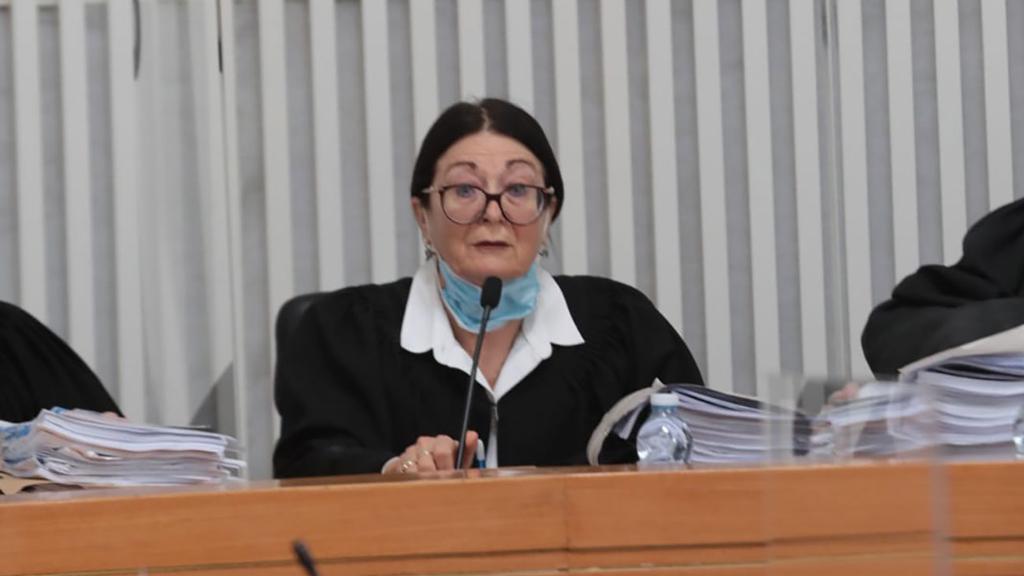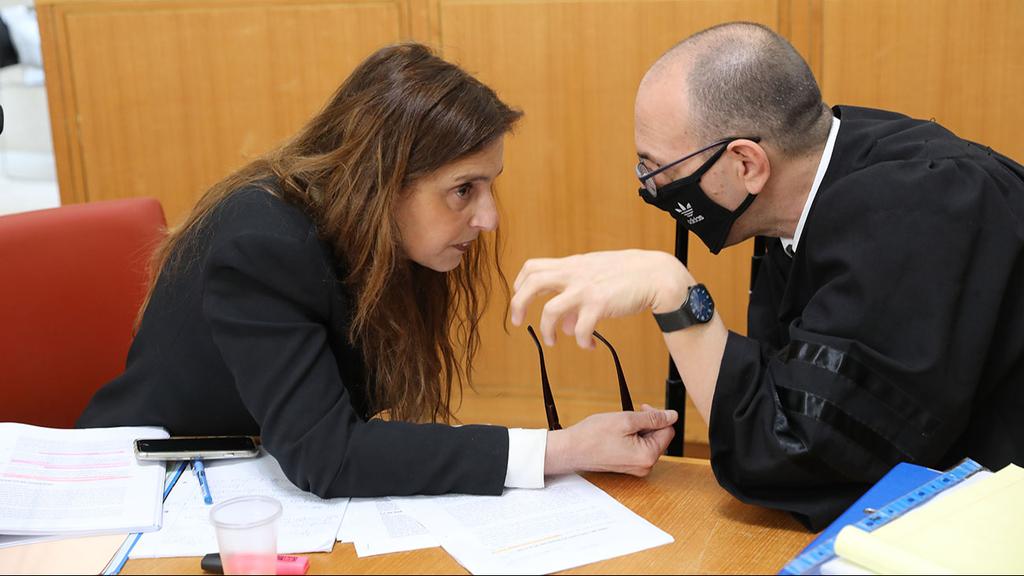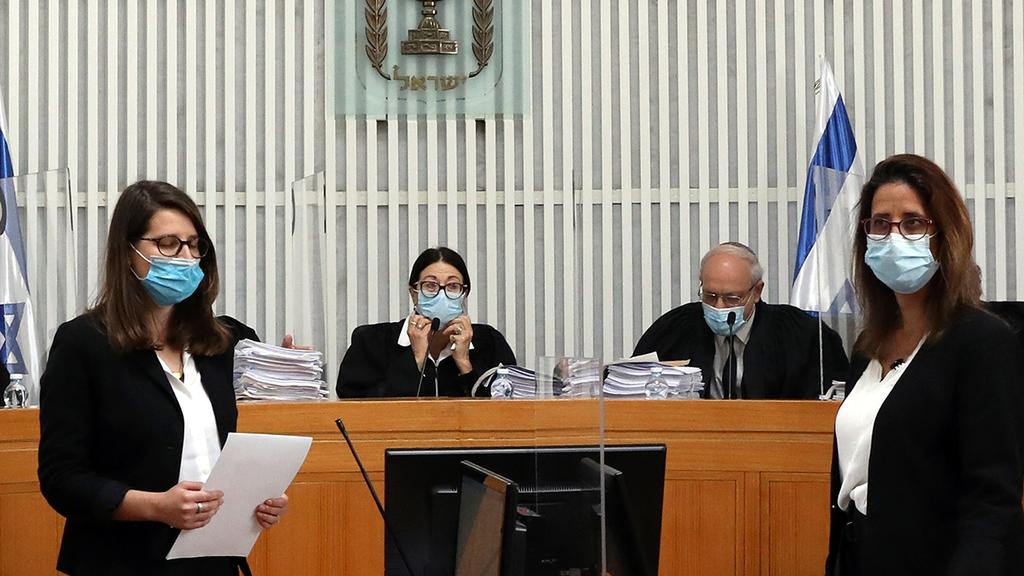Getting your Trinity Audio player ready...
Israel's high court will resume its session Monday to hear petitions against the power-sharing coalition agreement between Likud and the Blue & White party.
The court adjourned Sunday after hearing petitions against the possibility of an indicted politician forming the next government. Netanyahu is facing criminal charges for bribery, fraud, and breach of trust.
The court deliberated for seven hours with an exceptionally large panel of 11 justices and in a rare instance to also be broadcast live.
Chief Justice Ester Hayut told the council for petitioners that "the fort will not fall," if the court rules to allow Netanyahu to form a coalition government despite being under indictment. Under Israeli law, a prime minister may remain in the job while criminal proceedings against them are being deliberated in the courts and until a final verdict is reached, including all levels of appeal.
If the court voids Netanyahu's ability to serve as prime minister, Israel could be plunged into political chaos, and it would likely trigger the country's fourth consecutive election in just over 12 months.
The high court has become a lightning rod for criticism by Netanyahu and his political allies, who accuse it of overreach and political interference, while the long-time leader's opponents consider it a bastion of democracy under dangerous assault.
Pro-democracy demonstrators have been taking to the streets weekly to protest Netanyahu's continued rule. Last week, counter-protesters against the court demonstrated against its hearing the petitions against Netanyahu's rule.
Defending the prime minister, Michael Rabello, an attorney representing Netanyahu's Likud party, said that over a million Israelis had voted for him with the knowledge he could be prime minister. "How can you say that this panel can replace the voters?" he asked the court.
Daphna Holtz Lechner, an attorney representing the petitioners, told the court that if Netanyahu is made head of the government "then what we see today will only be the promo. When he's prime minister, this will be very dangerous."
Netanyahu has denied any wrongdoing. His trial was postponed due to restrictions his hand-picked interim justice minister placed on the courts after the coronavirus crisis erupted and is scheduled to commence later this month.
Last week, Israel's attorney general, Avichai Mandelblit, said in an opinion to the court that while Netanyahu's indictments "raise significant problems," there was no legal basis for barring him from serving while facing criminal charges.
Israeli law mandates that Cabinet ministers and mayors resign if indicted, but prime ministers are not specifically required to step down. In January, the Supreme Court declined to rule on whether Netanyahu could form a government under indictment, saying the matter remained "theoretical" ahead of March's elections.
On Monday, the court will address petitions concerning Netanyahu's power-sharing coalition deal with his main rival, former military chief Benny Gantz.
Netanyahu and Gantz signed the agreement to form a national government last month after Israel's third consecutive, deadlocked election in just over a year. The deal would have Netanyahu serve the first 18 months as prime minister, after which Gantz would assume power for the next 18 months.
The coalition deal and Netanyahu's upcoming corruption trials have triggered large protests in Tel Aviv's main square. Participants in the demonstrations observed social distance in accordance with public health regulations.
The petitions against Netanyahu were filed by advocacy groups that have asked the high court to ban any indicted politician, including Netanyahu, from being allowed to form a new government. They also say that parts of the coalition deal are illegal.
Eliad Shraga, head of the Movement for Quality Government in Israel, one of the groups petitioning the court, said in a statement ahead of Sunday's proceedings that it was "unconscionable that a man like this will go in the morning to court to sit in the dock and in the evening will manage the security cabinet and send us and our children to battle."
Netanyahu, Israel's longest-serving prime minister, has held onto power as a caretaker leader for more than a year as political stalemate prevented the creation of a government and triggered successive elections.
First published: 10:30, 05.03.20





